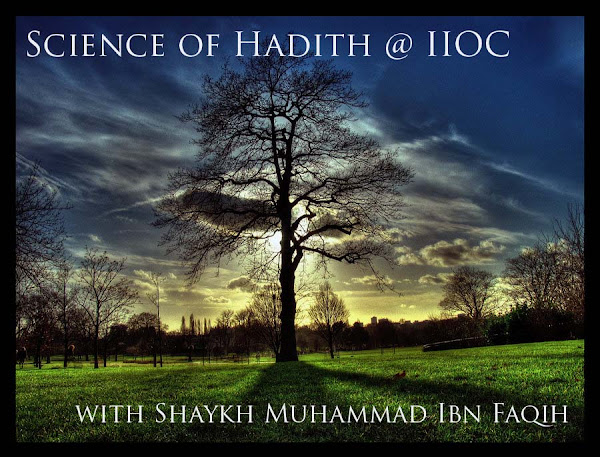“Allah sent Muhammad with guidance and the ultimate truth.”
We are obligated to understand the truth and what it mandates for us to do, what it requires us to do.
1. Part of this truth is very clear.
2. Another portion of it is something that we cannot understand on our own, rather through the Qur’an and the sunnah of the Prophet (saws)
3. The last portion was left for our scholars to interpret, especially on the issues that were not dealt with in history.
Allah (swt), His wahy came in two forms:
1. The Qur’an
2. The Sunnah of the Prophet
When you examine Qur’anic text, you are looking for indication, only. You do not discuss authenticity. The authenticity of the entire Qur’an has already been established and agreed upon. But when it comes to the Sunnah, scholars have differed so therefore two things must be examined:
1. Authenticity - can this be established to be said by the Prophet (saws) à thubut
2. Indication – what did the prophet (saws) mean by this statement à dalalah
In regards to authenticity, the scholars have specified a methodology to verify a hadith to ensure that it can actually be attributed to the Prophet (saws). This is mustalah (usul, `ulum) al-Hadith.
A hadith is composed of two parts:
1. matn (text)
2. isnad (chain of reporters)
`Abdullah ibn al-Mubarak said, “The isnad is part of the religion: had it not been for the isnad, whoever wished to would have said whatever they liked.”
A hadith where an intermediary is omitted is known as Mursal.
Ibn Sirin said, “They would not ask about the isnad. But when the fitnah happened, they said: Name to use your men. So the narrations of ahl al-Sunnah would be accepted, while those of ahl al-Bid`ah would not be accepted.
As time passed, more reporters were involved in each isnad, and so the situation demanded strict discipline in the acceptance of ahadith; the rules of regulating this discipline are known as Mustalah al-Hadith (The Classification of Hadith).
Definition of Mustalah al-Hadith: The rules regulating the strict discipline in the acceptance of hadith.
`Ulum al-Hadith
1. riwayah – concerned with authenticity of the source (e.g. Shaykh al-Albani, who studied rijal al-hadith) à This is important to establish a connection between the two people. It is also important in order to see if there is a missing link.
2. dirayah – concerned with the accuracy of the text within the transmission
What is hadith?
Linguistically speaking, hadith means new. A hadith is that which was attributed to the Prophet (saws), whether it be a statement, action, approval, or description.
1. Statement – “Verily, actions are judged by their intentions…”
2. Action – any action that the Prophet (saws) did himself.
3. Approval – any hadith that says, “such and such” happened in front of the Prophet (saws), implying that the he approved it (taqrir); sometimes they will indicated that he approved of it (i.e. He smiled)
4. Description – any hadith that contains a description of the Prophet (saws). Example: The statement of Anas ibn Malik about the beauty of the Prophet (saws).
What is a khabar?
It could be a hadith, but also includes the statements of the sahabah, tabi`un, and the early scholars; could also contain statements about the Prophets of the past.
What is athar?
It is a statement that can only be attributed to a sahabiyy or a tabi`i. Example: `Umar (ra) said, “Teach your children swimming, archery, and horseback riding.”
What is a hadith qudsi?
It is a statement attributed to Allah (swt) that is not of the Qur’an. It could be transmitted in one of two ways:
1. The Prophet (saws) said that Allah (swt) said…
2. The Prophet (saws) attributed a saying to Allah (swt), where he was inspired with it, but he is using his own language and his own words.
What is the sunnah?
Literally, sunnah means ‘way.’ It could also mean something that you initiate yourself. It has four technical meanings:
1. According to the scholars of hadith, sunnah means hadith (statements, actions, approvals, descriptions, characteristics).
2. According to the scholars of usul, sunnah means that which was attributed to the Prophet (statements, actions, approvals). Characteristics & descriptions of the Prophet have no implications on rulings.
3. According to the scholars of fiqh, sunnah is one of the classifications of hukm.
4. According to the scholars of `Aqidah, sunnah means the opposite of bid`ah.
à The word sunnah could be a very vague term. If someone says that “this is from the sunnah of the prophet,” then it must be understood what perspective it is being taken from.
Notes taken by Mohammad Mertaban

No comments:
Post a Comment